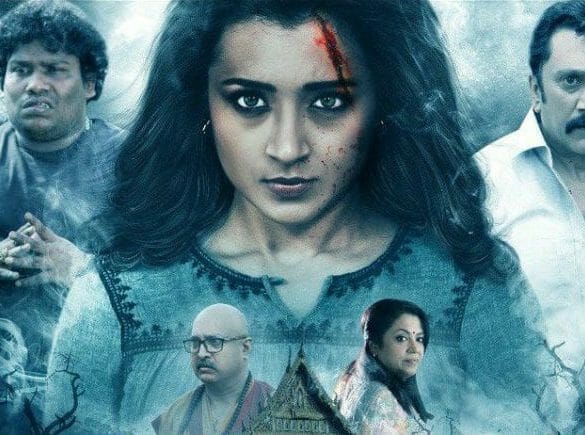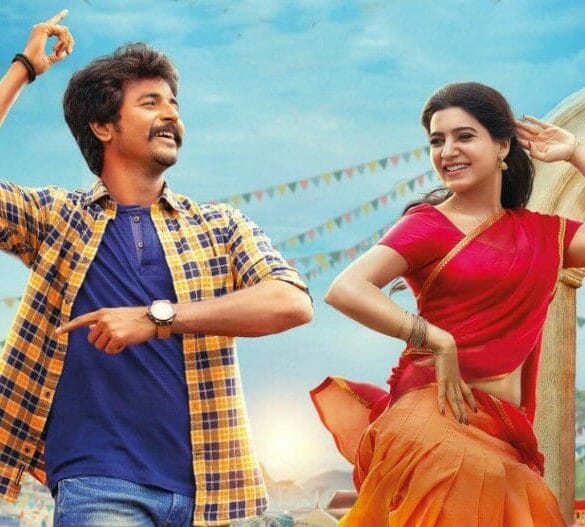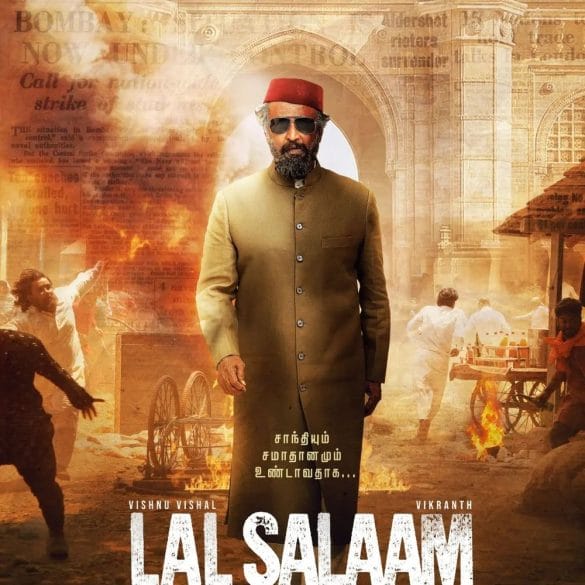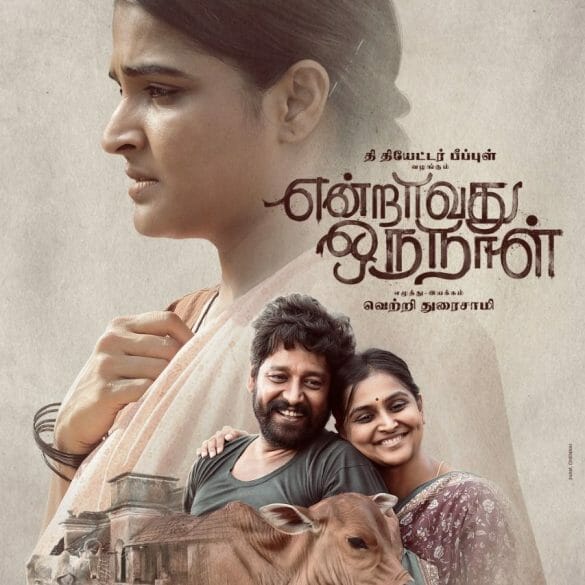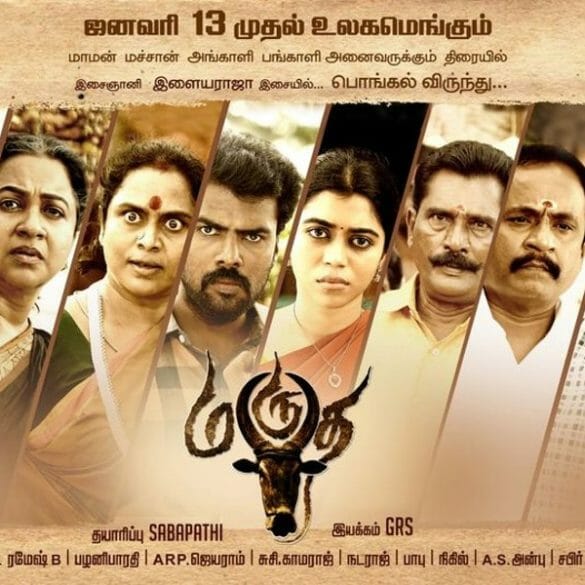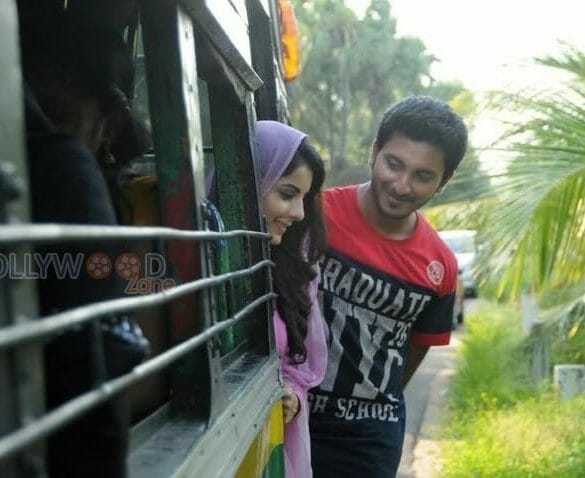When Tamil cinema was churning out dramas based on almost similar storylines, film maker S. P. Jananathan was the one who opened a different side to Tamil cinema audience through his responsible social dramas like Iyarkai, E, and Purampokku Engira Podhuvudamai. He preferred to use the visual medium to band his ideology to the audience. It is sad that Laabam happened to be his last flick. A double release weekend for actor Vijay Sethupathi, who had another release in Thuglaq Durbar. The actor who was last seen in Master playing antagonist to Vijay has not had a solid commercial success for a while now. Is Laabam solid enough to put him back on the winning horse? To know that let us get in to the movie review.
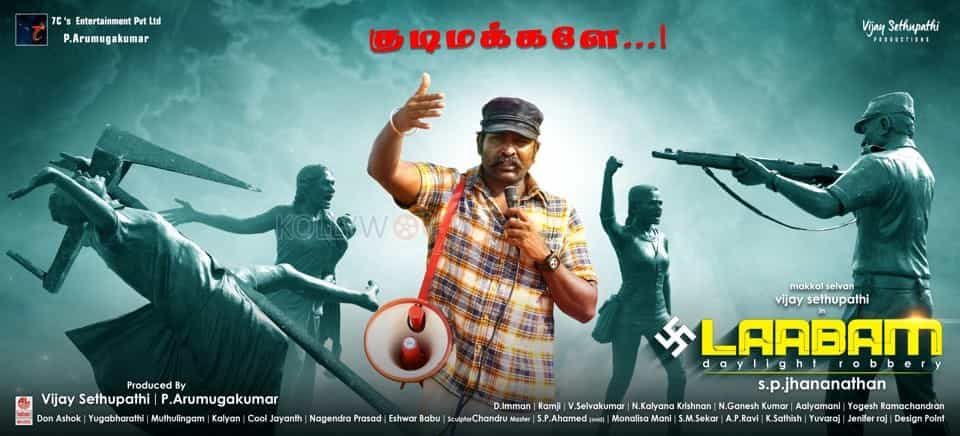
Laabam First Look Posters 01
Laabam follows the life story of Pakkiri aka Pakkirisamy (Vijay Sethupathi), a drifter who returns to his hometown Peruvayal, after travelling around the globe. He is devastated by the state of agriculture in the village. He takes it up on himself to propel farming in to a sustainable business once again. He brings his friends (Ramesh Thilak, Kalaiyarasan, Daniel Annie Pope) together to take forward his vision of building a self-sufficient economy through adapting community farming. They decide to join the local farmers union to further the cause by uniting the farmers of the town. With the help of his friends and his innovative initiatives Pakkiri earns the trust of the farmers and comes to power in the union. He implements cost efficient farming techniques, and literally take classes to them on the benefits of building a self-sufficient economy, and encourage the farmers to move towards community farming to lessen the burden of poor and struggling farmers.
Through traveling across the country, he has made connections with various farmer’s unions throughout the country. He lays out his farming methodologies to them and encourage them to implement it in their locality. In short, he sets the spark for an agricultural revolution. All his doings do not evoke a good reaction in Vanangamudi (Jagapathi Babu), a corporate businessman. Vanangamudi is the embodiment of capitalism. We see him leading a life of absolute sophistication – a posh bungalow, chills around in his indoor swimming pool, is always in booze and is surrounded by young women to assist him. In sequences like these film maker S. P. Jananathan endeavor to display the huge variance in the lifestyle of a businessman and a struggling farmer who works hard to feed people. By doing so he tries to set the mood of the audience for the speeches that are about to bombard one after another.
Vanangamudi is concocting a plan to have the agro-market under his control. So that he can fix the price for the commodities. He views Pakkiri as a great hinderance to his mission. They both face off each other. Will Pakkiri be able to outdo the influential Vanangamudi and revolutionize the agricultural sector, is what makes the rest of the flick.
Director S. P. Jananathan sets the stage to deliver economic ideology lessons on capitalism and communism. He finds his missionary in Vijay Sethupathi and through him he seeks to lay down the benefits of his ideologies to the audience. The problem with this approach is, it has pushed the film in to the documentary type dramas. Generally, S. P. Jananathan packs his films with a hard-hitting social message around a gripping plot that keeps us hooked to the film. But in Laabam for some reasons he has abandoned that way of filmmaking. Instead, he goes bang right on point to what he wishes to deliver to the audience. He has so much to convey and so the speeches keep coming. Laabam feels like as if S. P. Jananathan already knew that it was going to be his last film and he wanted to say as much as possible before his time runs out.
Dialogues is a strong suit of S. P. Jananathan. He had the prowess to channel his message powerfully through his sharp dialogues. Even if not often we do experience the delight of such dialogues in Laabam. Besides the lectures and serious proceeding, we have a romantic track for both the protagonist as well as the antagonist. They feel forced and their absence would have made no difference to the plot. In fact, it would have paced up the entertainer.
Actor Vijay Sethupathi is natural as usual. He is fitting in the role of an ordinary man turning in to a leader to lift his people. Actress Shruti Haasan literally has nothing to contribute to the film and she seems to struggle even in a simple role. It is tiresome to see actor Jagapathi Babu play the antagonist with so much similarities film after film. Actress Sai Dhanshika is another poorly written character. It is disheartening to see a potential artist signing up for dummy roles. Actors Ramesh Thilak, Kalaiyarasan, G. Marimuthu, and Daniel Annie Pope have all played a decent part in the proceedings.
On the technical front, music director D. Imman is clearly not at his best. He disappoints both with his songs and background score. Cinematographer Ramji’s frames are adequate for the film. Editors N. Ganesh Kumar and S. P. Ahamed have added value to the drama with their cuts.
On the whole, director S. P. Jananathan’s one final piece to the Tamil cinema might not be the best work of him but it speaks in volumes about the good intention of the man and his persistent effort to enlighten people through his films.
